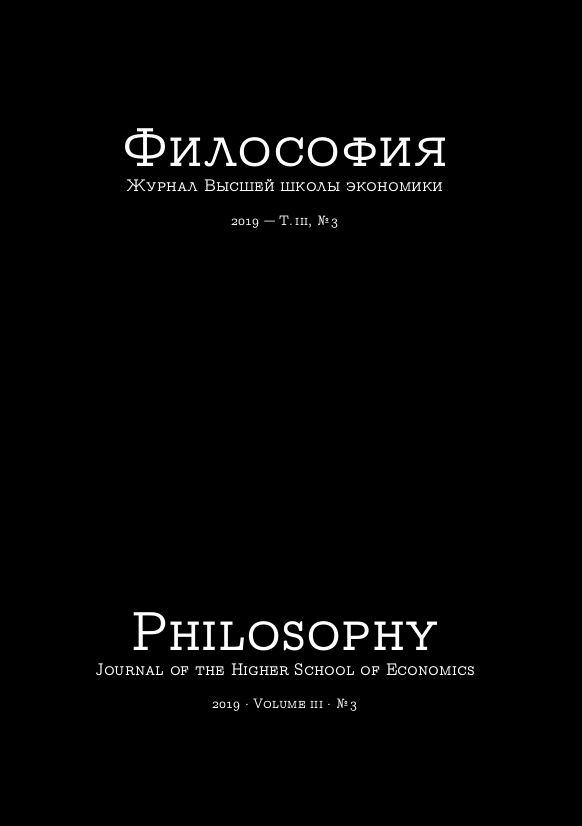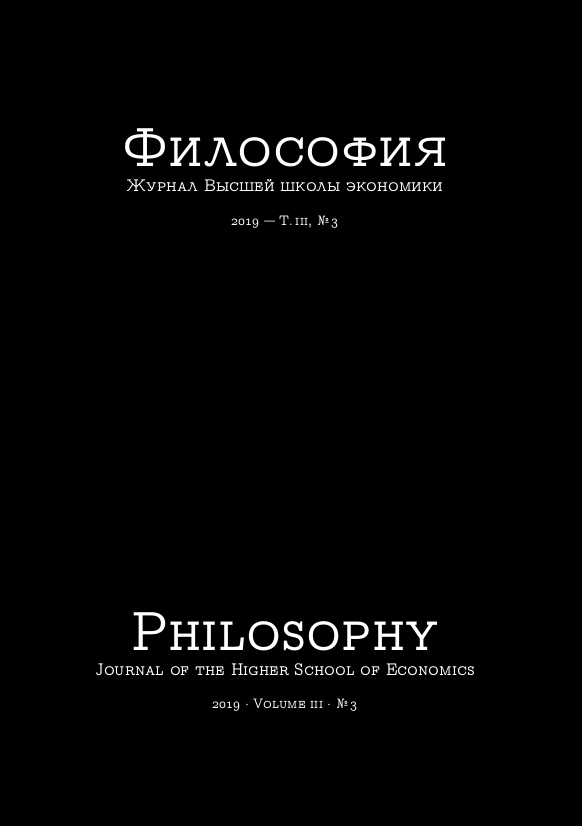
The expression “Ethics of belief” is still unusual for Russian readers. While in the West, many spears have been broken in disputes regarding evidentialism, fideism, reliabilism, and other epistemological concepts, in Russian philosophy these problems are only just beginning to be discussed. Of course, experts are well aware of what is at stake, but at present time there are no translations of basic texts in Russian or relevant studies, and it causes a whole range of problems in education and understanding of modern epistemology in general. To fill this gap is called upon the present issue of the journal.
This is the first issue of a Russian-language journal entirely devoted to the ethics of belief — this topic has not yet been discussed in Russian philosophy. Given this circumstance, the issue is constructed in a way to provide a sufficiently complete picture of the topic, starting with the famous article by W. Clifford “Ethics of belief” (1877). A new Russian translation was made for this issue (by B.V. Faul and Y.V. Gorbatova) and an extensive introductory article on the history of the emergence and development of the ethics of belief as a special direction in epistemology was added.
The research section includes eight articles that in one way or another consider the topic of the issue.
The first is an article by Andrei Zheleznov, in which “belief” is considered as the basis for a moral lifestyle. An article by Alexei Gaginsky is devoted to the analysis of the fundamental difference between the “beliefs” of evidentialists and religious faith. Rob Lovering’s article provides a critical analysis of Clifford’s famous thesis: it is wrong always, everywhere, and for anyone to believe anything upon insufficient evidence. Further, the article by Yulia Gorbatova discusses a very specific question about the epistemic status of insights. In other words, is it possible to cognize the world, relying, inter alia, on such a phenomenon as insight? Guy Akstell’s article proposes an approach to the ethics of belief that takes into account possible decision-making risks when doxastic responsibility is considered from the point of view of the degrees of the riskiness of agent strategies. Next comes an article by Pavel Butakov, which substantiates the thesis that evidentialists must believe promises. An article by Evgeny Borisov is devoted to a fascinating but complex topic: the possibility of analyzing doxastic expressions using the semantics language of possible worlds. An article by Anna Moiseeva provides a detailed analysis of H. Putnam’s pragmatic approach to the ethics of belief in general and evidentialism in particular.
Further, in the section “Analytics of Thoughts: Panel Discussion”, the reader can find a very peculiar and extremely interesting discussion of traditional ascetic Christian practices by using the analytical method. Particularly, Alexander Mishura presented a text in which very ancient authors and no less ancient ideas seem to come to life when they are rendered to the modern context. It is an attempt to read the Christian tradition in a language of modern epistemology so you can find a great number of striking ideas and approaches that can be useful for modern people. Whether the author successes one can judge by the critical comments presented by a group of researchers: Sergey Astapov, Igor Gasparov, Kirill Karpov and Sergey Levin. This discussion evidently illustrates how the ethics of belief can be integrated into theological discussions as well as into modern philosophical ones.
Finally, in the book review section the reader can find a review by Evgeny Loginov on the book of D. Volkov “Freedom of Will: Illusion or Opportunity?” Loginov’s review is so independent and detailed that it could be an independent article.
In conclusion, it remains to add that it was possible to issue this number due to the fact that some of the materials were originally prepared for the “Ethics of belief” seminar (with the support of the John Templeton Foundation), which was held on September 25-26, 2018 at the Institute of Philosophy of the Russian Academy of Sciences. Videos of performances are available at: https://iphras.ru/page18879305.htm
Alexey Gaginsky and Julia Gorbatova






